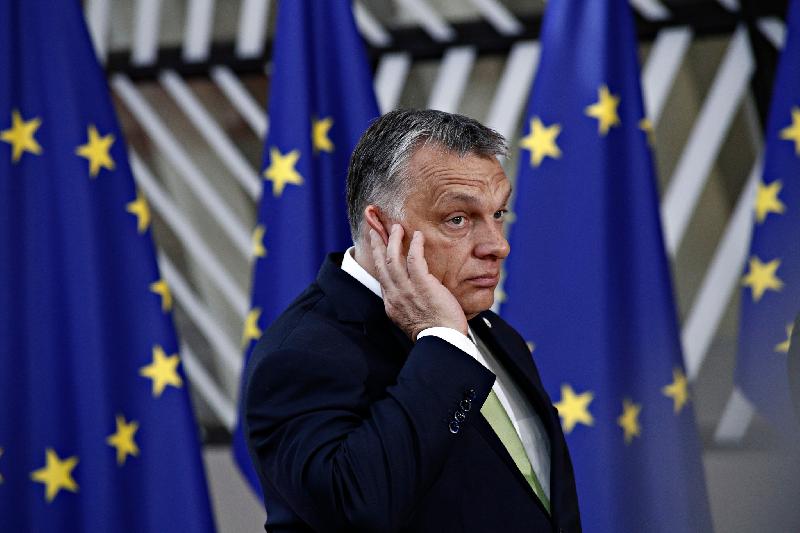Until this past fortnight, I had no idea how many American Spectator readers were emotionally attached to Hungary. I’ve heard from people who live there and people who want to live there and people who think that everybody should live there.
Hungary, to these correspondents, is not just a small, landlocked country in eastern Europe. It seems to be more of a state of mind and, more particularly, a NatCon state of mind. As Viktor Orbán, who has served as the prime minister since 2010, puts it: Hungary has become under his stewardship a global model for the “illiberal society.” In doing so, Hungary has become a magnet for itinerant NatCons, who then serve as global promoters, many of them unpaid, for Viktor Orbán.
What does an illiberal, NatCon society actually look like? Well, Hungary is perhaps best known today for its strong anti-immigrant stance. It has built stout fences, deployed armed guards, and trained snarling dogs to defend its homeland. Unlike the U.S., there is no disorder on Hungary’s southern border. Good for Viktor Orbán. He is an avowed Christian, loves large families, and hates his countryman George Soros. Good for Viktor Orbán. On the other side of the ledger, he has criminalized the activities of NGOs trying to help migrants, pushed the state deep into the banking and energy industries, blared his admiration for Vladimir Putin, and affronted repeatedly his NATO allies. Viktor Orbán’s record is a mixed bag.
On Jan. 12, Orbán took a long stride down the road toward illiberalism. Deciding that prices at the grocery store had increased unacceptably — inflation, you know — he marked down prices for flour, sugar, milk, and other staples. Orbán didn’t bother blathering on about supply chain breakdowns or clogged transport hubs. He is a nationalist. He is an old-school strongman, and when markets displease him, he intervenes to correct them. (Put aside for the moment the historical fact that price caps, before failing, always produce the same results: a short-term sense of relief, followed by product shortages and pervasive corruption.)
There are words, most of them unpleasant, to describe men like Viktor Orbán, but the NatCons never use them, even on occasions when Orbán arrogates to himself the power to fix commercial prices. Here is Sohrab Ahmari, the chief ideologist for the national conservatism movement, reacting to the actions of Jan. 12:
*Whiney voice* But, but, but, what would Milton Friedman say! https://t.co/bk8RbS9mP7
— Sohrab Ahmari (@SohrabAhmari) January 12, 2022
It is a puzzle, isn’t it? Why would acute observers like Ahmari look at Hungary — a virtual theme park for the white patriarchy — and say, in effect, “I have seen the American future and it works”?
The answer, suggested persuasively by the law of parsimony, is that the NatCons really have moved on from fusionist conservatism. They really do believe that fusionism has died. They really have gone all in for Brent Bozell’s virtue to the exclusion of Frank Meyer’s freedom.
Sad.
If I were better-read, I would have learned much of what I should know about American freedom from Tocqueville or one of the Adams boys or R. Emmett Tyrrell, Jr. But my most memorable instructor, in truth, has been Maurice Saatchi, who was the smartest and most effective advertising man of the past half-century. If you’ve ever purchased a tube of toothpaste or a can of bug spray, the odds are that you have felt the force of his persuasive powers.
As chairman of what became for a time the world’s largest ad agency, Maurice earned a reputation as a man who could sell almost anything to almost anybody. Well, not quite. While he was never weighed down by excessive modesty, he took pains to put his skills behind — and his name in front of — high-quality products. Pitching accounts on both sides of the Atlantic, and then the Pacific, he won and won and, it is reliably reported, never tired of winning.
(Maurice even attracted notice, at least briefly, from the political class. Maurice helped persuade the wearied, old-boy leadership of his adopted country, the U.K., to take a chance on a greengrocer’s daughter, a young woman named Margaret Thatcher. That was quite a marketing feat when you think about it. The U.K. was in those days exhausted from carrying imperial responsibilities and was looking for respite from global challenge. Mrs. Thatcher, with help from Maurice, told the old boys to get off their duffs, get back in the game, and start competing to win in the world economy. The old boys, remarkably, hastened to comply.)
Whenever Maurice Saatchi looked at America, he turned green with envy. To his professional eye, America has what no other country in the world has ever had. It has “one-word equity.” As Maurice explained it, “There are 750,000 words in the English language … One-word equity is the most priceless asset in the new world of the new technologies.”
America’s one word, of course, is not order. It’s freedom.
via spectator

